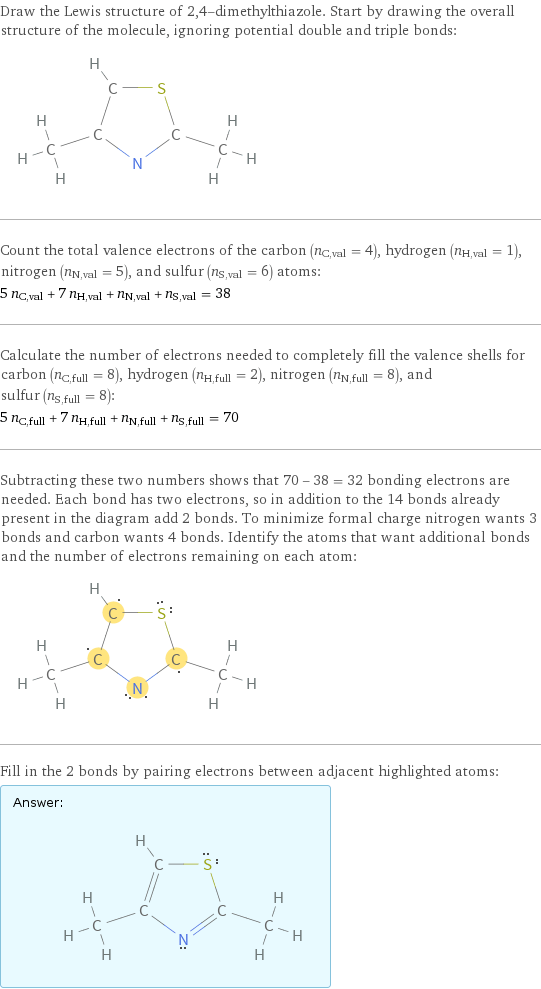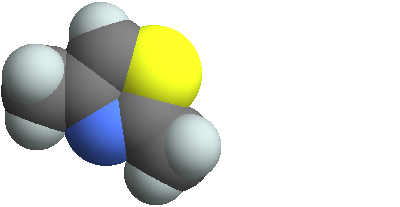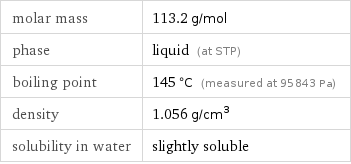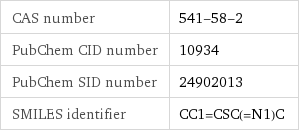Input interpretation

random | chemical
Result

2, 4-dimethylthiazole
Chemical names and formulas

formula | C_5H_7NS name | 2, 4-dimethylthiazole alternate names | 2, 2-dimethylthiazole | 2, 4-dimethyl-1, 3-thiazole | 2, 4-methylthiazole | thiazole, 2, 4-dimethyl- mass fractions | C (carbon) 53.1% | H (hydrogen) 6.23% | N (nitrogen) 12.4% | S (sulfur) 28.3%
Lewis structure

Draw the Lewis structure of 2, 4-dimethylthiazole. Start by drawing the overall structure of the molecule, ignoring potential double and triple bonds: Count the total valence electrons of the carbon (n_C, val = 4), hydrogen (n_H, val = 1), nitrogen (n_N, val = 5), and sulfur (n_S, val = 6) atoms: 5 n_C, val + 7 n_H, val + n_N, val + n_S, val = 38 Calculate the number of electrons needed to completely fill the valence shells for carbon (n_C, full = 8), hydrogen (n_H, full = 2), nitrogen (n_N, full = 8), and sulfur (n_S, full = 8): 5 n_C, full + 7 n_H, full + n_N, full + n_S, full = 70 Subtracting these two numbers shows that 70 - 38 = 32 bonding electrons are needed. Each bond has two electrons, so in addition to the 14 bonds already present in the diagram add 2 bonds. To minimize formal charge nitrogen wants 3 bonds and carbon wants 4 bonds. Identify the atoms that want additional bonds and the number of electrons remaining on each atom: Fill in the 2 bonds by pairing electrons between adjacent highlighted atoms: Answer: | |
3D structure

3D structure
Basic properties

molar mass | 113.2 g/mol phase | liquid (at STP) boiling point | 145 °C (measured at 95843 Pa) density | 1.056 g/cm^3 solubility in water | slightly soluble
Units

Liquid properties (at STP)

density | 1.056 g/cm^3 refractive index | 1.509
Units

Chemical identifiers

CAS number | 541-58-2 PubChem CID number | 10934 PubChem SID number | 24902013 SMILES identifier | CC1=CSC(=N1)C
NFPA label

NFPA label
Safety properties

flash point | 42.78 °C
Toxicity properties

RTECS classes | other